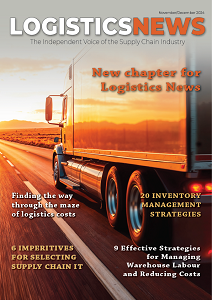The SPAR Group has begun roll-out of its electric vehicle fleet for deliveries ordered via online shopping platform, SPAR2U. The extensive rollout, which follows a successful pilot-phase implemented in March this year, reinforces The SPAR Group's commitment to reducing carbon emissions and promoting sustainability in the retail sector.
In partnership with Inhance Supply Chain Solutions and SkyNet, The Spar Group is replacing 65 of its conventional fuel-powered bikes with cutting-edge, energy-efficient vehicles. This transition is projected to save over 212.4 tons of tailpipe carbon emissions annually, making a significant contribution to the company's sustainability goals which includes achieving net-zero emissions across all operations by 2050.
The initial deployment of vehicles has already commenced in Gauteng, KwaZulu-Natal, Western Cape, Eastern Cape and Lowveld and features two-seater, 300kg load capacity 4-wheeler City Vans, 53 electric motorcycles with an 80kg load capacity, and 12 three-wheel motorcycles with a 200kg load capacity.
“At SPAR, we are dedicated to minimising our environmental impact while positively contributing to the well-being of our social and natural ecosystems, and we are excited to be extending our commitment to sustainability to our delivery vehicles," says Blake Raubenheimer, Executive: Omnichannel at The SPAR Group. “Our goal is to achieve a 50% SPAR2U green fleet by 2025, not only enhancing our nationwide availability but also delivering a greater positive environmental impact”
"Since the launch of SPAR2U earlier this year, we have successfully conducted proof-of-concept trials, validating the viability and efficiency of our electric vehicle solution. To power our vehicles, we diligently source electricity from renewable sources, including solar, guaranteeing a reliable and sustainable energy supply while reducing environmental harm.”
“As a responsible corporate citizen, we take pride in being at the forefront of green logistics in South Africa. Our goal is to become a climate-resilient group, creating genuine shared value and driving societal change for future generations. To achieve this, we are dedicated to reducing our carbon and water footprints, practicing responsible procurement, and protecting natural resources. This is just the next step, there’s still a long way to go,” concluded Raubenheimer.
The electric two-wheelers possess an impressive range, allowing them to complete 15 trips on a single charge. Each bike has an average range of 80 kilometres, and to ensure continuous operations, spare batteries are provided, enabling a swift battery swap and an additional 160 kilometres of travel per day before the need for recharging arises. Although the daily distance covered may vary and presently remains relatively low due to ongoing growth, there are plans to steadily increase it over time.
One of the most notable benefits of these electric vehicles is their positive impact on the environment. By adopting a dual charging approach, with 50% solar and 50% Eskom charging, an estimated annual offset of approximately 3.27 tons of carbon emissions per bike is achieved. This reduction in carbon emissions plays a pivotal role in The SPAR Group creating less carbon-intensive warehouses and contributing to Scope 2 carbon emission reduction.
SPAR2U’s electric vehicles will also contribute to a quieter and cleaner urban environment. As they lack traditional engines, noise pollution is eliminated, providing a more pleasant experience for both commuters and residents. Furthermore, the transition to electric vehicles results in a decrease in oil leaks on consumer driveways, thereby reducing environmental hazards and unhappy customers.
The SPAR Group’s concerted efforts in embracing electric vehicles and implementing sustainable practices throughout its operations aim to establish a greener and more environmentally conscious delivery system while actively minimising its carbon footprint.

.jpg)
.jpg)

